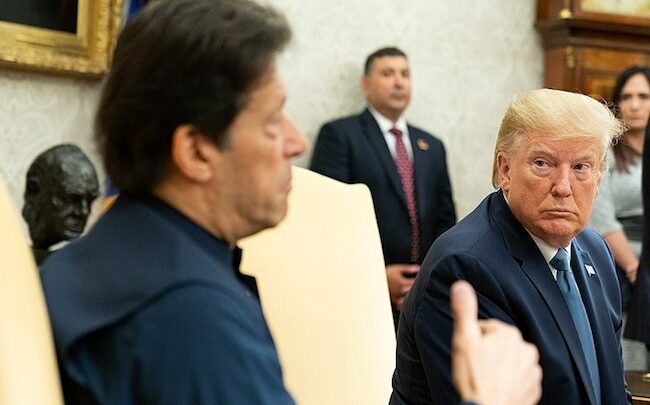
By Irfan Ali
Dharna (Mass sit-ins) politics in Pakistan is not a new phenomenon as it has happened several times by various political parties and other entities. Yet, it is the “timing of such Dharnas” that is the most important thing for the success and failure of such methods when pressurizing governments. Currently Pakistan faces numerous problems ranging from an unstable economy, terrorism, staunch opposition from other major political parties such as the PML (N) and PPP, the Kashmir issue, the Afghanistan matter and mounting Western pressure regarding CPEC. Any misadventure created by a Dharna or any other issue could cost the present government a heavy price in the form of regional commitments considering the current situation of the country.
Recently Bilawal Bhutto announced a Dharna to be held in March in addition to the one planned by Fazul Rehman this month. Both parties through Dharna politics want to pressurize the incumbent government via politicizing the widespread inflation plaguing the Pakistani economy. They also aimed to further build on how Fazul Rehman through his previous Dharna the previous year had tried to pressurize the Imran Khan government along similar lines. One of his top demands then was calling for a re-election because he considered the election of July 2018 rigged. This demand was favored by wide swathes of the opposition because of their resentments against the existing government and its policies.
As is the current situation within Pakistan is already unstable because of various problems. The most pressing being Western pressure being applied through the FATF and IMF in key development projects such as CPEC. Under the current circumstances, the government cannot afford any kind of strike or resentment by political parties which can diminish its image at the national as well as global levels.
This is apparent in how, the United States and India through the FATF and other means have been pressurizing Pakistanon the pretext of clamping down on money laundering which is allegedly being used by various terrorist organizations within Pakistan. In this regard, any kind of trouble generated within the country through Dharna politics or any other means would lead to the country gaining further unfavorable international attention. The resulting political instability could further bring Pakistan closer to being placed on the FATF black-list. If that happens then Pakistan would suffer immensely giving birth to a whole host of new political and socio-economic restrictions for the whole nation.
According to the present government, it has already been struggling to control the list of demands given by the FATF to avoid being put on the blacklist. This was evident in the recent visit by Imran Khan and the Army Chief to the US where a whole range of issues were clarified with the US government. These included the internal situation within Pakistan along with other regional concerns such as terrorism, the Afghan peace process, the Kashmir dispute and Chinese involvement through CPEC. Moreover, the statement by American president Donald Trump should be taken seriously by the present government that America with the cooperation of various nations will protect human rights violations throughout the world and fight against radical Islamic terrorism. There are many precedents where America has been intervening within various regions of the world under the pretext of protecting human rights and eradicating terrorism.
In addition, there is no denying that India wants to exploit the situation further by projecting the Pakistani state as the mother of terrorism at multiple regional and global forums. There can be various motives behind this move in which the Kashmir issue and RSS ideology hold immense importance. It is widely believed that PM Narendra Modi wants to divert the attention of Pakistan as well as other regional and global forums from the atrocities and human rights violations taking place in Jammu and Kashmir.
In this regard, Imran Khan has been trying his best to halt Dharna politics through multiple strategies by calling for political unity to help alleviate the current difficult situation in the country. This for instance has been evident in his attempts to prioritize the threat from India regarding the Kashmir issue well as India’s designs to portray Islamabad as a terrorist state, above the internal politics being waged within Pakistan. Such concerns have made the situation of the country considerably sensitive hence the government has to behave and act sensibly to control the emerging situation. If such issues are not going to be solved skillfully and efficiently, then the entire nation is likely to bear the consequences and repercussions of the troubles generated through such internal instability.
Irfan Ali is working as a Research Associate at the Strategic Vision Institute (SVI), a non-partisan think-tank based out of Islamabad, and Ph.D. scholar in the Department of Defense and Strategic Studies, Quaid-i-Azam University Islamabad, Pakistan.




